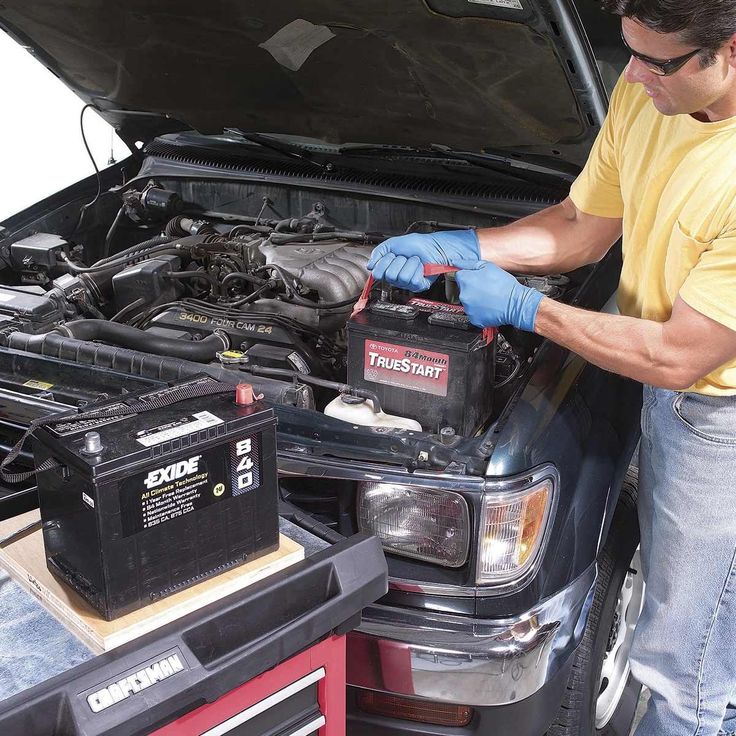Repair instructions
Common Car Problems You Shouldn’t Delay Fixing
Summary
Some car issues demand immediate attention, including faulty alternators, dead batteries, and flat tires. Failing to fix fluid leaks, malfunctioning brakes, or an overheating engine can lead to serious safety risks and expensive damage. Additionally, problems with the timing belt or transmission system require prompt professional intervention.
Common Car Problems You Should Address Without Delay
As a car owner, you know that vehicles are complex machines made up of many parts that don’t last forever. Eventually, certain components wear out or malfunction, and some issues, if left unchecked, can lead to more severe damage or even safety hazards. While some problems can be addressed over time, there are specific car troubles that require immediate repair to avoid costly repairs or breakdowns. Here’s a breakdown of the most critical car issues you should never ignore.

1. Bad Alternator
A faulty alternator is one of the most common car problems that can leave you stranded. It’s easy to overlook, assuming that your car will run fine as long as the battery holds charge. However, the alternator plays a crucial role in maintaining the electrical power your vehicle needs. Without a functioning alternator, your battery can quickly drain, causing the engine and essential systems to fail. Ignoring this issue could lead to your car stalling, or worse, cause severe damage to electrical components like engine cooling fans. Always get a bad alternator checked and replaced as soon as possible to avoid breakdowns.
2. Dead Car Battery
While a dead car battery is not an immediate threat if your alternator is still working, it’s certainly a problem you don’t want to ignore. A dead battery means your car’s electrical systems, including lights, ignition, and power accessories, will fail. If left unaddressed, a dead battery could leave you stuck on the road with a vehicle that won’t start. It’s crucial to have your battery tested and replaced before it leaves you in a tight spot.
3. Flat Tires
Driving on a flat tire is not only dangerous, but it can also damage other critical car systems. When a tire loses air pressure, it can throw off your car’s balance and put unnecessary strain on the suspension, brakes, and steering. Furthermore, driving with a flat makes the tires more prone to further damage and reduces traction, increasing the risk of accidents. If you notice a flat tire, it’s essential to replace or repair it immediately for both safety and vehicle longevity.
4. Fluid Leaks
Fluid leaks are a sign of underlying issues in your vehicle, and they should never be ignored. Leaking brake fluid or gasoline is particularly dangerous—brake fluid affects your car’s stopping power, and gasoline leaks present both a fire hazard and a loss of fuel efficiency. Even less hazardous fluids, such as coolant or transmission fluid, can cause significant damage if they’re not addressed. If you notice any fluid puddles under your car, take it to a mechanic immediately for a thorough inspection.
5. Inoperative Brakes
Brakes are one of the most important safety systems in your vehicle, and they should never be ignored. Worn-out brake pads or malfunctioning brake components can lead to a dangerous loss of stopping power, putting you and others at risk. Additionally, driving with bad brakes can damage other parts of the braking system, such as rotors and calipers, which can increase repair costs down the line. If your brakes are showing signs of wear, get them fixed promptly to avoid potentially catastrophic consequences.
6. Overheating Engine
An overheating engine is a serious issue that requires immediate attention. If your engine is running hot, it can cause severe damage to key components like the head gasket, cylinder heads, and engine block. Overheating can be caused by a lack of motor oil, a malfunctioning radiator, or a broken cooling pump. Continuing to drive with an overheating engine can lead to expensive repairs or even a total engine failure, so it’s essential to pull over and turn off your engine as soon as you notice the temperature gauge rising.
7. Timing Belt Failure
The timing belt is a critical component that keeps the engine’s pistons and valves in sync. If it fails, your engine won’t run, and attempting to drive with a broken timing belt could cause further internal damage. Timing belt issues often present themselves through strange engine noises or oil leaks, and can result in poor engine performance and increased emissions. If you suspect timing belt failure, have it replaced immediately to avoid a costly engine overhaul.
8. Transmission Troubles
The transmission is one of the most complex and crucial systems in your car. While you might be able to drive with minor transmission issues, ignoring them can lead to total transmission failure. Problems with the transmission can cause your car to stall or prevent it from shifting gears, leaving you stranded. Driving with a damaged transmission often leads to more extensive and expensive repairs. If you’re experiencing issues with shifting or notice unusual noises or behavior, have your transmission checked and repaired without delay.
Ignoring certain car problems can put you at risk of safety hazards and cause irreparable damage to your vehicle. Whether it’s a failing alternator, a flat tire, or transmission trouble, addressing these issues promptly with the help of a professional mechanic is crucial for your safety and your vehicle’s longevity.
